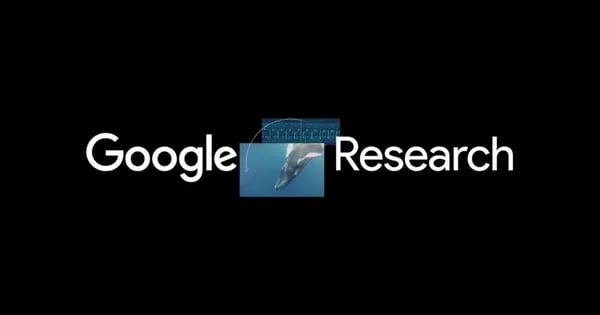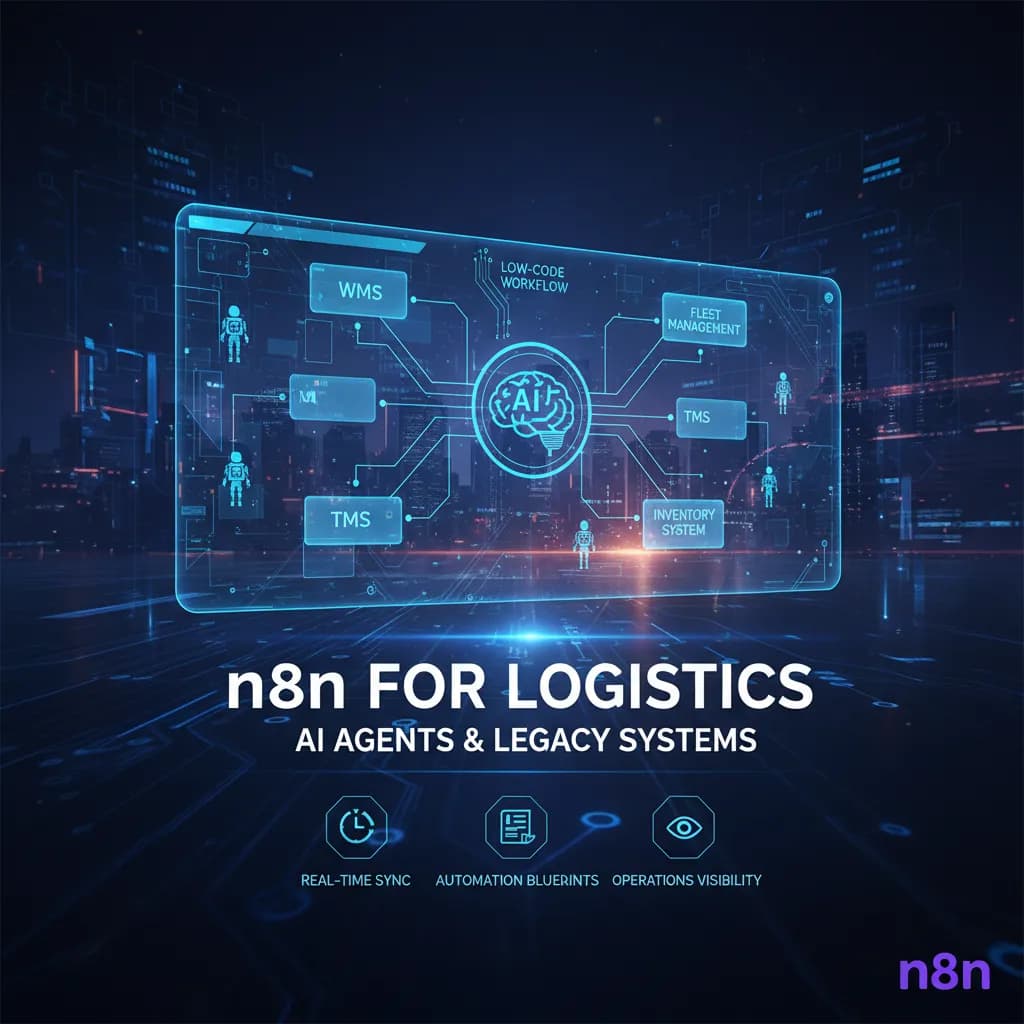A few years ago, during a late (and overly caffeinated) night shift at the hospital, I once joked with a resident about what would happen if you let an AI study for the USMLE. Fast forward, and it turns out, Google didn’t just take that bet—they gave the AI a med school crash course, a library card, and a supercomputer. Enter Med-Gemini, an ambitious leap at the crossroads of artificial intelligence and medicine that might soon have us all calling for a robotic consult. So, with a curious eye and a dash of skepticism, let’s dig into how this next-gen model is rewriting the future of diagnosis, prediction, and collaboration in healthcare—minus the midnight cold pizza.
Section 1: Med-Gemini’s ‘Aha!’ Moment—AI That Outperforms at Medical Exams
If you are following the latest AI healthcare advancements, Med-Gemini’s breakthrough performance on medical exams is a milestone you cannot ignore. Announced by Google Research and Google DeepMind, Med-Gemini is a next-generation family of models purpose-built for clinical reasoning and multimodal understanding. Its most striking achievement? Setting a new benchmark for medical exam accuracy AI by scoring an unprecedented 91.1% on MedQA USMLE-style questions.
Med Gemini USMLE Accuracy: A New Gold Standard
The US Medical Licensing Exam (USMLE) is widely recognized as one of the most challenging assessments for clinical knowledge and decision-making. Med-Gemini’s 91.1% accuracy on these USMLE-style questions is not just a number—it’s a signal that AI is reaching new heights in clinical decision-making AI. This result outpaces the previous best by Med-PaLM 2 by 4.6%, and, crucially, outperformed GPT-4 V on key multimodal and text-based benchmarks.
‘Med-Gemini achieving over 91% in USMLE-style medical exam questions is a major leap in AI clinical reasoning.’ – Greg Corrado, Distinguished Scientist, Google Research
Comprehensive Benchmarking Across 14 Diverse Tasks
To truly test its capabilities, Med-Gemini was evaluated on 14 distinct tasks that span the full spectrum of medical AI applications:
- Text-based clinical reasoning
- Multimodal understanding (images + text)
- Long-context scenarios, such as reviewing patient histories and EHRs
- Specialized challenges, including NEJM Image Challenges and USMLE-style multimodal tasks
This rigorous benchmarking demonstrates that Med-Gemini is not just a one-trick pony. Its performance extends across modalities and contexts, making it a versatile tool for a range of clinical and research scenarios.
Transparency and Trust: Clinician Review Matters
One of the most important aspects of Med-Gemini’s evaluation was the involvement of expert clinicians. Their review found that 7.4% of MedQA questions were unsuitable for AI evaluation due to missing information or ambiguous interpretations. This transparency is critical in medicine, where trust and clarity are paramount. By openly acknowledging these limitations, the Med-Gemini team sets a new standard for responsible AI development and evaluation.
Why Skepticism Is Healthy in Medical AI
It’s natural for clinicians to approach new technology with a degree of skepticism—especially in a field where patient safety is at stake. Med-Gemini’s transparent benchmarking and clinician-reviewed results help address these concerns, fostering an environment where innovation and caution go hand in hand. As AI systems like Med-Gemini continue to evolve, this healthy skepticism will be essential for ensuring that new tools are both safe and effective in real-world clinical settings.
Outperforming the Competition: Med-Gemini vs. Med-PaLM 2 and GPT-4 V
Med-Gemini’s results are not just incremental improvements—they represent a leap forward. On 10 out of 14 medical benchmarks, Med-Gemini established state-of-the-art performance, consistently outperforming both Med-PaLM 2 and GPT-4 V. Whether it’s text-based reasoning, image interpretation, or handling complex, long-context scenarios, Med-Gemini is setting new standards for what medical exam accuracy AI can achieve.
For anyone invested in the future of AI in healthcare, Med-Gemini’s achievements on the USMLE and beyond mark a true ‘Aha!’ moment—one where artificial intelligence not only keeps pace with human expertise but, in many cases, leads the way.
Section 2: Not Just Book-Smart—Med-Gemini’s Leap in Multimodal Clinical Reasoning
When you think of AI in healthcare, you might picture a system that’s only as good as the textbooks it’s trained on. Med-Gemini, however, is redefining what’s possible by moving beyond rote memorization to true clinical reasoning—and it’s doing so across a spectrum of data types and real-world scenarios. This next-generation family of models, developed by Google Research and Google DeepMind, is engineered specifically for Med Gemini multimodal applications, combining advanced self-training with AI-powered search health techniques to keep its medical knowledge current and relevant.
Advanced Self-Training and AI-Powered Search for Up-to-Date Knowledge
One of the most impressive aspects of Med-Gemini is its ability to self-train using uncertainty-guided web search. This means you can rely on it to pull in the latest medical information, not just what was available at the time of its initial training. This approach allows Med-Gemini to generalize well, supporting clinicians with up-to-date, evidence-based recommendations. In rigorous benchmarking, Med-Gemini achieved a remarkable 91.1% accuracy on the MedQA USMLE-style exam, setting a new standard for AI in clinical reasoning.
Zero-Shot Excellence in Medical Video and EHR Question Answering
Med-Gemini’s zero-shot capabilities are particularly noteworthy. Without any extra training, it excels in answering questions from medical videos and Electronic Health Records (EHRs). This means you can introduce new use cases—like analyzing a novel type of patient data—without retraining the model. In fact, Med-Gemini outperformed previous models on 10 out of 14 medical benchmarks, including challenging multimodal tasks and long-context scenarios.
- Zero-shot EHR QA: Enables rapid deployment in new clinical environments.
- Medical video analysis: Supports diagnostic workflows without additional data labeling.
Multimodal Mastery: Text, Images, and Beyond
Med-Gemini’s true leap lies in its ability to integrate and reason across multiple data types. Whether it’s interpreting 2D chest X-rays, analyzing 3D CT scans, or synthesizing information from both images and clinical notes, Med-Gemini demonstrates a level of multimodal understanding that’s unprecedented. As Joëlle Barral, Senior Director at Google DeepMind, put it:
“Med-Gemini’s multimodal versatility could mark a shift from assistant to genuine diagnostic partner.”
This multimodal capability allows you to handle complex diagnostic workflows that span text, images, and structured data—making Med-Gemini a powerful tool for real-world clinical reasoning.
Clinician-Preferred Medical Text Summarization and Referral Generation
If you’ve ever struggled with lengthy, jargon-filled medical reports, Med-Gemini’s medical text summarization and referral letter simplification features will stand out. Clinicians consistently preferred Med-Gemini’s outputs for their clarity, succinctness, and coherence. Whether summarizing a patient’s history or generating a referral letter, Med-Gemini’s AI-powered approach streamlines communication and reduces administrative burden.
- Summarization: Produces clear, concise medical summaries that aid quick decision-making.
- Referral letter generation: Simplifies complex cases for smooth handoffs between providers.
Superior Long-Context Processing for Complex Workflows
Med-Gemini’s ability to process long-context data means you can trust it with intricate diagnostic scenarios involving multiple data formats and extended patient histories. This is especially valuable in specialties like oncology or cardiology, where synthesizing information from various sources is critical for accurate diagnosis and treatment planning.
By combining advanced self-training, AI-powered search health, and robust multimodal reasoning, Med-Gemini is not just book-smart—it’s a leap forward in practical, clinician-focused AI for healthcare.
Section 3: The Magic Behind 2D, 3D, and Genomic Models—What Med-Gemini Saw That Doctors Missed
When you think about the future of medical imaging AI and predictive analytics in healthcare, the Med-Gemini family stands out for its ability to see what even seasoned clinicians might miss. By integrating comprehensive data—from 2D images to 3D scans and genomic sequences—Med-Gemini’s specialized models are redefining the boundaries of clinical insight.
Med-Gemini-2D: Raising the Bar in Medical Imaging AI
Med-Gemini-2D is engineered to interpret conventional 2D medical images, such as chest X-rays, pathology slides, and ophthalmology scans. What sets this model apart is its ability to not only classify and answer questions about these images but also generate detailed, clinically relevant reports. In rigorous testing, Med-Gemini-2D outperformed previous benchmarks by up to 12% in chest X-ray report generation. This is a significant leap, as it means the model can provide more accurate and actionable information for clinicians, potentially improving patient outcomes.
- Surpassed specialty models in chest X-ray, pathology, and ophthalmology tasks
- Set a new state-of-the-art in visual question answering for chest X-rays
- Delivered concise, coherent, and sometimes more accurate summaries, as preferred by clinicians
Med-Gemini-3D: Seeing Beyond the Surface
The Med-Gemini-3D model tackles the complexity of volumetric imaging—think CT and MRI scans. These 3D datasets are notoriously challenging, even for experienced radiologists. Yet, Med-Gemini-3D demonstrated that over 50% of its generated reports would lead to identical care recommendations as those of radiologists. This kind of alignment is rare in AI, especially in such a nuanced field.
But numbers only tell part of the story. In one remarkable case, Med-Gemini-3D identified a pathology in a head CT scan that the original radiologist’s report had missed. As Lauren Winer, a member of the research team, put it:
"Seeing Med-Gemini flag a missed pathology in a CT scan was, frankly, a goosebumps moment."
These qualitative wins highlight the potential of comprehensive data integration—combining AI’s pattern recognition with human expertise for safer, more reliable care.
Med-Gemini-Polygenic: Genomic Health Predictions Reimagined
Moving beyond imaging, the Med-Gemini-Polygenic model is a breakthrough in predictive analytics for healthcare. It is the first language model capable of predicting disease risk and health outcomes directly from genomic data. In head-to-head comparisons, Med-Gemini-Polygenic outperformed traditional linear polygenic risk scores on eight major health outcomes, including depression, stroke, glaucoma, rheumatoid arthritis, and type 2 diabetes.
- Predicted risk for eight health conditions more accurately than previous models
- Discovered six additional health outcomes without explicit training, showcasing its intrinsic ability to recognize genetic correlations
This leap in Med-Gemini genomic health predictions opens new doors for early intervention and personalized medicine, giving you tools to anticipate health risks before symptoms even arise.
Why These Advances Matter
The Med-Gemini-2D, 3D, and Polygenic models are not just about incremental improvements—they represent a shift in how you can leverage medical imaging AI and predictive analytics in healthcare. By integrating diverse data types and outperforming previous benchmarks, Med-Gemini is helping you see more, know more, and act sooner. The result? A future where AI augments your clinical intuition, sometimes even catching what the experts might miss.
Section 4: Trust, Warnings, and Wild Possibilities—What Comes Next for Medical AI
As you explore the future of AI models in healthcare, it’s clear that the path forward is as much about trust and caution as it is about innovation. Med-Gemini’s impressive technical achievements are only the beginning. The real test lies in how these systems perform in the unpredictable, high-stakes world of clinical care. Ongoing research into Med Gemini safety reliability issues is not just a checkbox—it’s a continuous process that will shape the next era of medicine.
Rigorous Evaluation: Beyond the Benchmark
Traditional benchmarks, such as multiple-choice exams and image classification tasks, have helped establish Med-Gemini’s capabilities. However, medicine is rarely black and white. Open-ended evaluation by clinical panels—where experts assess AI-generated reports, recommendations, and reasoning—remains in its infancy. This shift from standardized tests to nuanced, human-centric reviews is crucial for AI models healthcare evaluation. As the research highlights, “open-ended, specialist-driven evaluation is still evolving and will benefit from expanded input across the health professions.”
Panel-based reviews are essential for patient safety. They help uncover subtle errors, biases, or gaps in reasoning that classic benchmarks might miss. For example, a model might excel at identifying pneumonia on a chest X-ray but struggle with rare conditions or ambiguous cases. These are the moments where real-world validation matters most.
Med-Gemini: Not in Clinics—Yet
Despite its state-of-the-art performance, Med-Gemini is not ready for clinical deployment. It remains a research-only tool, awaiting further validation and regulatory review. As the research teams emphasize, “further work is needed to examine potential biases, safety, and reliability issues.” Before Med-Gemini or similar systems can be trusted in real-world clinical settings, they must prove themselves through rigorous, ongoing evaluation with human experts in the loop.
This is especially important in safety-critical environments, where a single misstep could have serious consequences. Overreliance on AI, or unrecognized model bias, could lead to missed diagnoses or inappropriate treatments. The research community is well aware of these risks, and collaboration with clinicians is central to addressing them.
Collaboration and the Future of AI in Clinical Settings
Google’s invitation to researchers and clinicians to help validate Med-Gemini is more than a formality—it’s a recognition that AI clinical reasoning integration must be a team effort. As Michael Howell puts it:
“Reliable healthcare AI will only earn trust by working hand in hand with clinicians, not in place of them.”
Imagine a future where your AI colleague joins the night shift, never missing a detail, offering second opinions, and even debating treatment plans alongside human experts. In this vision, AI models like Med-Gemini are not just tools—they are team members, challenging and expanding the very definition of a ‘clinician’. Picture a panel where half the voices are algorithms, each bringing a unique perspective to complex cases.
Warnings, Wild Cards, and What Comes Next
- Model Bias: AI can only be as fair and accurate as the data it learns from. Ongoing research is needed to uncover and correct hidden biases.
- Clinical Overreliance: There’s a risk that clinicians may trust AI recommendations too much, overlooking their own expertise or patient context.
- Open-Ended Evaluation: The move toward human-centric, specialist-driven reviews is just beginning. Your participation as a clinician or researcher is vital.
- Collaboration: Google’s research framework is open—your feedback and expertise are needed to shape the next generation of safe, reliable medical AI.
The future of AI models healthcare evaluation is collaborative, cautious, and full of wild possibilities. Med-Gemini is a bold step, but its journey into clinical reality depends on your trust, your warnings, and your willingness to imagine what comes next.
Section 5: Collaboration Over Competition—Why Med-Gemini’s Research Model Matters for You
If you are following the rapid evolution of AI healthcare advancements, the story of Google DeepMind Med Gemini and Google Research Med Gemini collaboration stands out for one key reason: it is built on the foundation of open, collaborative research. Med-Gemini is not just a technical achievement—it is a model for how the future of medical AI should be shaped, with transparency, shared expertise, and community-driven progress at its core.
From the outset, Med-Gemini’s development has been a team effort, drawing on the combined strengths of Google Research, Google DeepMind, and a wide network of clinicians, scientists, and engineers. Key contributors like Greg Corrado, Joëlle Barral, Lauren Winer, and many others have emphasized that the best results come from breaking down silos and inviting diverse perspectives. As Yossi Matias, a leader in Google’s AI health initiatives, puts it:
“The best AI breakthroughs in medicine won’t happen in isolation—they’ll happen together.”
This philosophy is woven throughout the Med-Gemini project. Unlike traditional research models that focus on competition and secrecy, Med-Gemini’s approach is built on collaboration and openness. The research teams have actively sought feedback from clinicians, user researchers, and multi-disciplinary expert panels. This ongoing dialogue ensures that the models are not only technically advanced but also grounded in real-world clinical needs and challenges.
What does this mean for you? If you are a healthcare innovator, clinician, researcher, or even a policy maker, the Med-Gemini program is designed to include your voice. Google is not developing these models in a vacuum. Instead, they are inviting academic and industry partners to join the journey—whether by piloting new use cases, co-developing benchmarks, or helping to evaluate safety and reliability in real clinical settings. This open-door policy is more than a gesture; it is a recognition that responsible AI deployment in healthcare requires broad input and shared responsibility.
The impact of this collaborative model is already clear. Med-Gemini’s state-of-the-art results on medical benchmarks, its ability to outperform previous models like Med-PaLM 2 and GPT-4 V, and its success across diverse domains—from radiology to genomics—are all outcomes of a research process that values transparency and cross-disciplinary input. By involving clinicians directly in the evaluation process and openly sharing both strengths and limitations, the Med-Gemini team ensures that the technology is tested against the realities of medical practice, not just theoretical benchmarks.
For organizations interested in AI healthcare advancements, this is your chance to help shape the next generation of medical AI. Google encourages you to express interest in becoming a research partner, whether you are looking to pilot Med-Gemini in your clinical workflow, contribute to its ongoing validation, or explore new applications. This collaborative spirit is what will drive the safe, effective, and ethical integration of AI into healthcare.
In conclusion, Med-Gemini is more than a technological milestone; it is a call to action for the entire healthcare and research community. By choosing collaboration over competition, Google DeepMind and Google Research are setting a new standard for how AI in medicine should be developed and deployed. If you want to be part of this journey—helping to ensure that AI healthcare advancements are safe, reliable, and truly transformative—the door is open. The future of medical AI will be written together.



